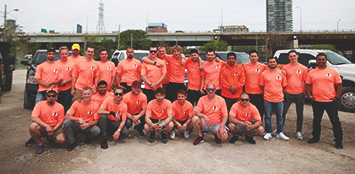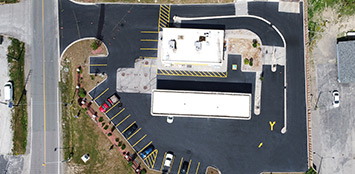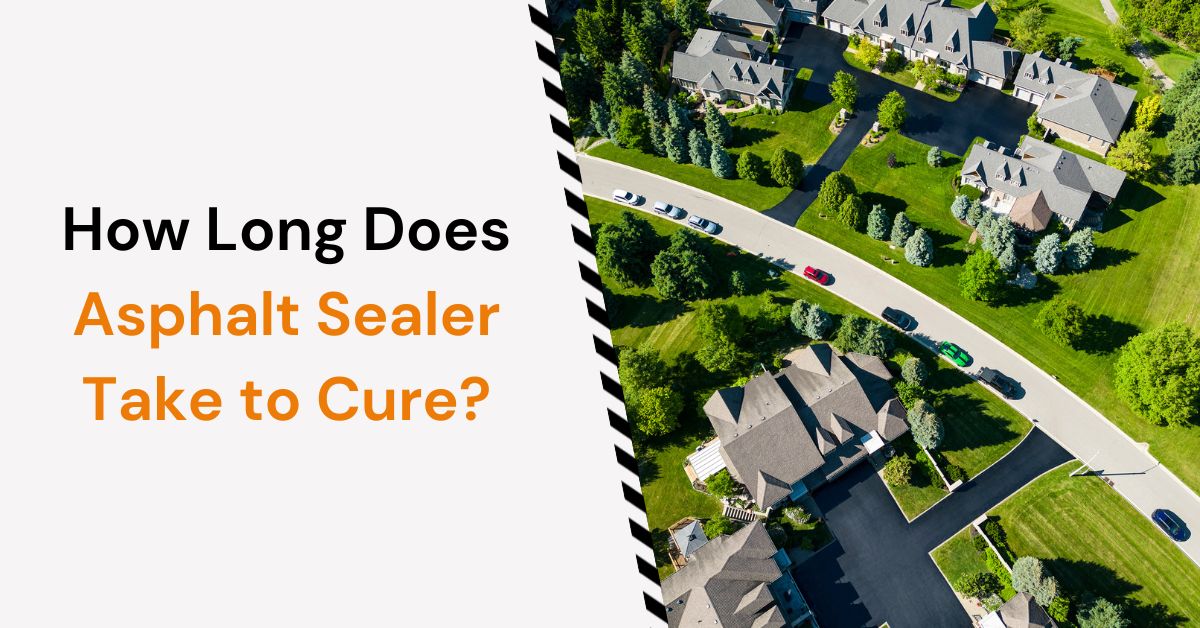If you’ve just had your driveway sealed, one of the first things you’re probably wondering is how long asphalt curing really takes. It’s one of the most important questions we get at Action Paving, and for good reason. Walking or driving on a surface before it’s ready can completely ruin the finish. What looks dry on the surface might still be soft underneath. So let’s get into it.
Understanding how long asphalt sealer takes to cure isn’t just about checking the time. It’s about temperature, humidity, the kind of sealer being used, and even how your driveway was prepped. And if you’re in Ontario, with weather that flips from sunny to soaking in a heartbeat, it matters even more.
Typical Asphalt Curing Times You Should Know
Here’s a general rule of thumb:
- Foot traffic: Wait 12 to 48 hours
- Vehicle traffic: Wait at least 72 hours
- Full cure: Up to 7 days (especially in cooler or more humid conditions)
Just because it looks dry doesn’t mean it’s cured. Asphalt curing is the chemical process that allows the sealer to fully harden and bond with the surface underneath. If you step or drive on it too soon, you risk scuff marks, tire tracks, and permanent damage. That’s why when we’re sealing a driveway, we always give clear instructions on when it’s safe to walk or park, because rushing the cure ruins the result.
What Affects Asphalt Curing Speed?
1. Ontario Weather
Ontario’s climate is a major factor. Ideally, you want temperatures above 10°C, with no rain for at least two days. High humidity will slow down the drying process. And shaded driveways, especially ones surrounded by trees or buildings, will cure more slowly than driveways in full sun.
Before we start any job, we always check the Environment Canada forecast and let you know if the weather’s going to affect your timeline. If the forecast looks sketchy, we don’t take chances. We reschedule.
2. Type of Sealer
We use premium oil-based asphalt sealer because it performs better and cures faster than water-based alternatives. If you’re still deciding what product to go with, it’s worth understanding the pros and cons of each before making a choice. Here’s the difference and what to keep in mind when choosing the type of asphalt sealer for your driveway or lot.
- Oil-based sealers: Deeper penetration, faster curing, better durability
- Water-based sealers: Slower to cure, especially in humidity or cool temps
If you’ve used a cheap water-based sealer in the past and found it took days to harden, or didn’t last the season, that’s why.
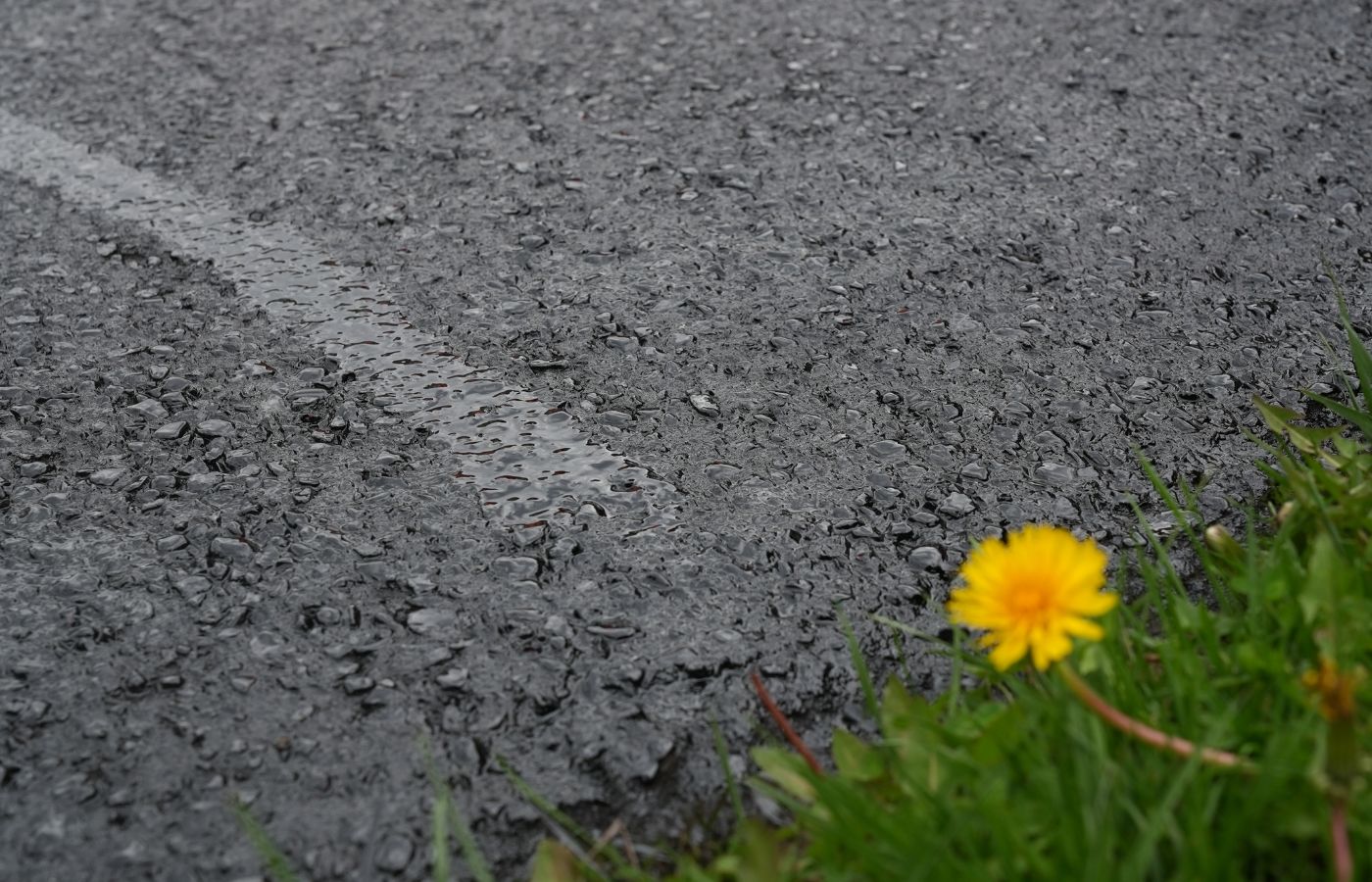
3. Application Quality
It’s not just the product, it’s how it’s applied. Thick, uneven layers of sealer trap moisture underneath and take forever to cure. We always apply thin, even coats, and usually recommend a double-coat system for lasting results. A good seal job should be smooth, clean, and dry evenly across the entire surface.
We’ve seen plenty of DIY jobs where the sealer was dumped on too thick or sprayed without cleaning the surface properly. The result? Weeks of soft, sticky sealant and patchy spots that never fully harden.
Common Mistakes That Disrupt Asphalt Curing
This is where we see most issues happen, and they’re all avoidable with the right info.
1. Walking or Driving Too Soon
People often see a dark black surface and think it’s ready. But under that dry-looking skin, the sealer is still soft. If someone walks across it, you’ll get footprints. If a car drives on it, tire marks. If it’s still soft and it rains? You’ll get streaking and uneven surfaces, which can require further repair for asphalt driveways.
We always block off the driveway, leave clear instructions, and if needed, place signage so no one ruins the surface while it’s still curing.
2. Rain Within 24 Hours
This is a killer. If it rains before the sealer has set, especially within the first 12 hours, it can wash off entirely or leave a blotchy, uneven surface. That’s why we’re obsessive about checking the weather before we book any sealing work.
If you’re doing your own job or hiring someone else, and they show up on a humid or cloudy day without checking the rain forecast, that’s a red flag.
3. Dirty or Wet Surfaces
Sealer needs a clean, dry surface to bond properly. If there’s dirt, oil, moss, or leftover moisture from pressure washing, it will interfere with the curing process. We take the time to clean every surface thoroughly before we seal, blowing off dust, scraping out weeds, and letting the surface dry out fully.
How We Handle Asphalt Curing for Ontario Homes
We’ve sealed driveways and handled sealing parking lots across Toronto, Mississauga, Burlington, Hamilton, and just about every other corner of the GTA. Every job we do comes with proper prep, premium materials, and detailed aftercare instructions to make sure your asphalt curing goes smoothly and holds up for the long run.
Our oil-based sealer cures in as little as 12–48 hours for foot traffic and 72 hours for vehicle traffic in ideal conditions. But we’re honest with our clients, if your driveway gets a lot of shade or it’s a damp time of year, we’ll recommend giving it extra time.
We treat each job differently based on:
- Local climate conditions
- Surface age and condition
- Surrounding landscape (trees, shade, drainage)
- Traffic expectations (light residential vs. heavy use)
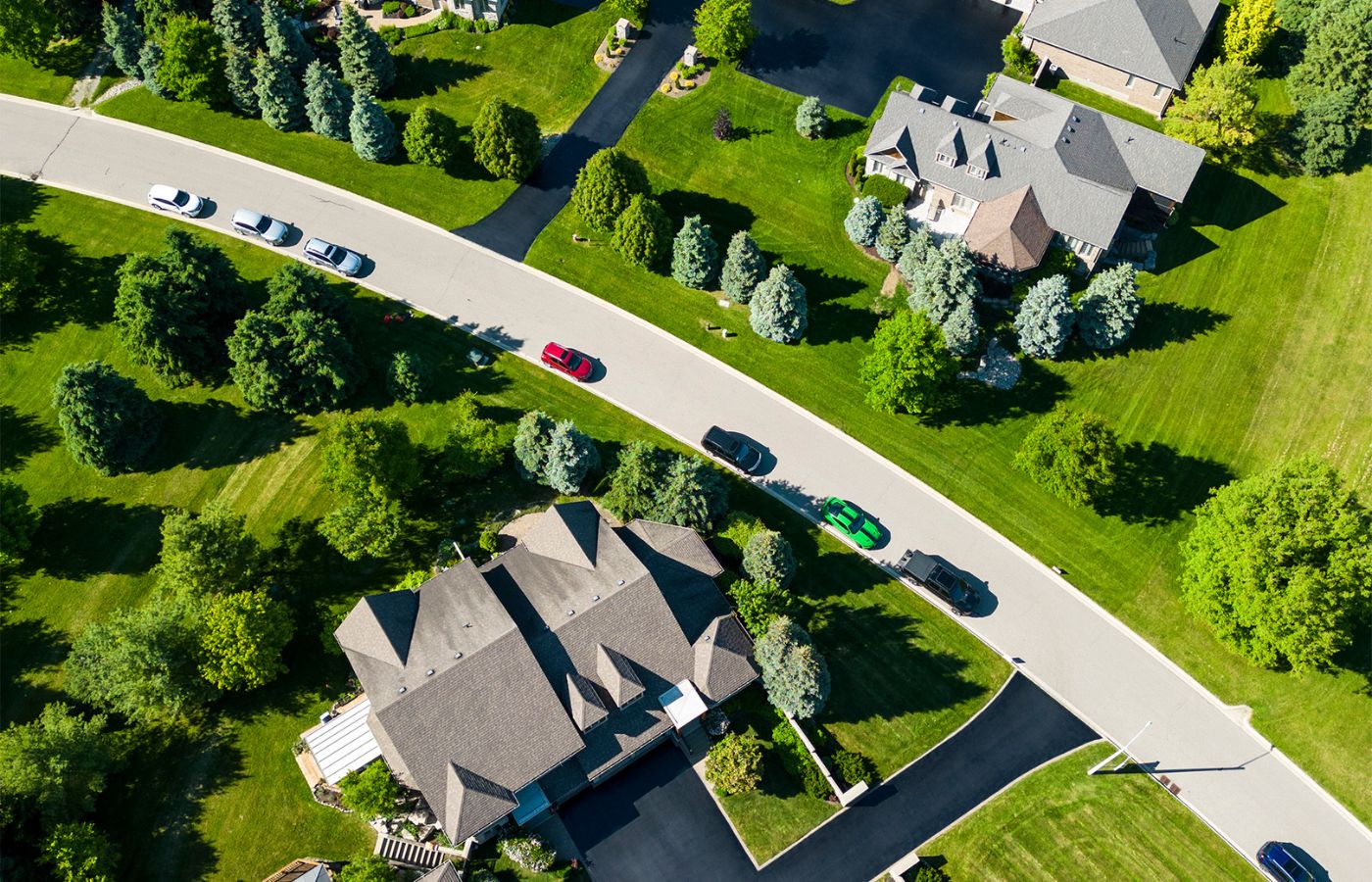
How to Protect Your Driveway During Asphalt Curing
In the first 72 hours:
- Don’t walk or drive on the surface
- Avoid watering lawns or spraying hoses near the area
- Don’t put down planters, bins, or patio furniture
- Keep kids, pets, and delivery people off it
After it cures:
- Avoid pressure washing for at least 30 days
- Don’t use de-icing chemicals in the first season
- Re-seal every 2–3 years depending on sun exposure and use
Plan Your Sealing Around the Right Weather
If you’re in the GTA or Southern Ontario, spring and early fall are your best bets. These seasons offer the best combination of warmth, low humidity, and minimal rain. Mid-summer can also work, but the hotter it gets, the quicker the surface skins over, which can trap moisture underneath if not done right.
That’s why we always monitor the forecast, humidity, and UV index before applying anything. We’d rather delay by a day than have you call us back because your finish got ruined.
Ready for a Proper Seal Job?
At Action Paving, we’re not just throwing down sealer and hoping for the best. We’ve spent years fine-tuning our process to make sure your asphalt gets the protection it needs, and cures the way it’s supposed to. From the moment we clean your surface to the day it’s ready for your car, we’ve got your back.
If you’re ready to book your driveway or parking lot seal, give us a call. We’ll make sure you get the right product, the right prep, and a result that holds up to Ontario’s four-season weather.
Let it cure right the first time, and you won’t have to seal again for years.

